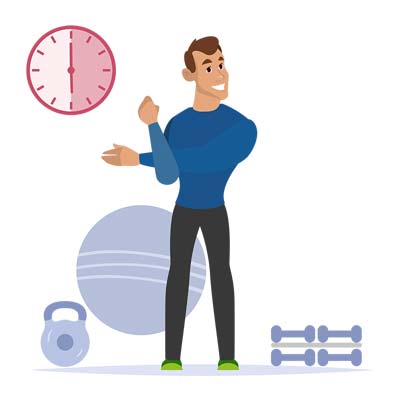Find a Cardiologist
10 Health Tips for People Who Sit for Long Hours
Sitting for a long period of time, whether it’s in the office or at home, can work against a person’s health in the long run. Ultimately, it may increase your risk for weight gain, heart disease, joint pain and diabetes, and it may also affect your posture.
If you are guilty of sitting majority of your day, here are some health tips that can help you avoid the long-term consequences that sitting for long hours may cause.
 1. Support your back using a small pillow or towel to maintain good posture. |
 2. Position your computer screen at eye level to avoid straining your neck and eyes. |
 3. Keep your feet flat on the floor, so your body weight is evenly distributed across your hips. |
 4. Stand up every hour to stretch and just take a few minutes to move your body. |
 5. Go for a quick walk during your break time. |
 6. Take the stairs, instead of the elevator, as much as possible. |
 7. Remember to get 30 minutes of moderate exercise, 5 days a week, even in 10-minute increments. |
 8. Eat healthier and limit your sugar intake. |
 9. Commit to drinking more water. |
 10. Squeeze in short, high-intensity workouts in your schedule. |
Final Thoughts
Sitting for long hours doesn’t have to completely compromise your health and well-being. Following the tips above can help you stay on top of your health as well as prevent the common health risks attached to living a sedentary lifestyle. However, if you’re experiencing signs of a chronic condition, whether it’s joint pain, diabetes or heart disease, please schedule an appointment with one of our doctors to get checked as soon as possible.
Have a productive day ahead!
Sources:
Harvard Health Publishing
Healthline
Lifehack

